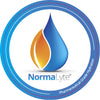Is Napping Bad for People with POTS? The Pros and Cons.


Living with Postural Orthostatic Tachycardia Syndrome (POTS) can be challenging, especially when it comes to managing symptoms like fatigue and dizziness. One common question among those with POTS is whether napping during the day is helpful or harmful.
Understanding POTS and Fatigue
POTS is a condition that affects the autonomic nervous system, leading to an abnormal increase in heart rate when standing up. This can cause a range of symptoms, including dizziness, fatigue, palpitations, and brain fog. Fatigue, in particular, is a significant concern for many with POTS, making the idea of napping seem appealing. However, the relationship between POTS and napping is complex.
Pros of Napping with POTS
- Energy Boost: A short nap can provide a temporary energy boost, helping you feel more alert and capable of managing daily activities.
- Symptom Relief: For some, napping can help reduce the severity of POTS symptoms like dizziness and fatigue, especially after a particularly challenging day.
- Improved Mood: Napping can improve mood and mental clarity, which may be beneficial if you’re feeling overwhelmed by the demands of living with POTS.
Cons of Napping with POTS
- Disrupted Sleep Patterns: Napping during the day can interfere with nighttime sleep, leading to a cycle of poor sleep quality and increased daytime fatigue. This is particularly concerning for people with POTS, as good quality sleep is crucial for symptom management.
- Increased Dizziness: Lying down for an extended period during the day can lead to blood pooling in the lower body, exacerbating dizziness and lightheadedness when you stand up after a nap.
- Potential for Over-Reliance: Regularly relying on naps to manage fatigue can prevent you from developing other, more sustainable strategies for managing your energy levels and POTS symptoms.
Is Napping Bad for People with POTS?
The answer to whether napping is bad for people with POTS isn’t straightforward—it depends on the individual. While some may find that a short nap improves their energy levels and helps manage symptoms, others might experience disrupted nighttime sleep and increased symptoms after napping. The key is to listen to your body and pay attention to how naps affect your overall sleep quality and symptom severity.
NormaLyte and POTS Symptom Management
NormaLyte is an oral rehydration solution designed to help manage symptoms of POTS by maintaining proper hydration and electrolyte balance. It's clinically proven to help, too! Dehydration and electrolyte imbalances can worsen POTS symptoms, so staying hydrated is crucial.
Taking NormaLyte before bed can be particularly helpful for POTS patients. It can help maintain fluid balance throughout the night, reducing the likelihood of waking up with symptoms like dizziness, palpitations, or headaches. This can contribute to a better night’s sleep, making you less likely to need a nap during the day.
Tips for Avoiding Daytime Naps
If you find that napping during the day negatively impacts your sleep or worsens your POTS symptoms, here are some tips to help you stay awake and manage your energy levels:- Stay Hydrated: Drink fluids regularly throughout the day, and consider using NormaLyte to help maintain electrolyte balance and reduce fatigue.
- Regular Physical Activity: Engage in light physical activity, such as stretching or walking, to promote circulation and reduce fatigue.
- Consistent Sleep Schedule: Aim for a consistent sleep schedule, going to bed and waking up at the same time each day. This can help regulate your body’s internal clock and improve sleep quality.
- Bright Light Exposure: Spend time in natural light during the day to help regulate your sleep-wake cycle and boost energy levels.
- Mindful Resting: If you feel the need to rest, consider lying down for a short period without fully falling asleep. This can provide some relief without disrupting your nighttime sleep.
If you or a loved one are navigating life with POTS, it’s important to consult with a healthcare provider to develop a personalized plan for managing symptoms and improving quality of life.









Leave a comment